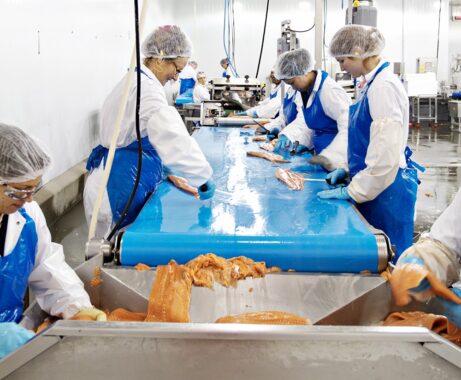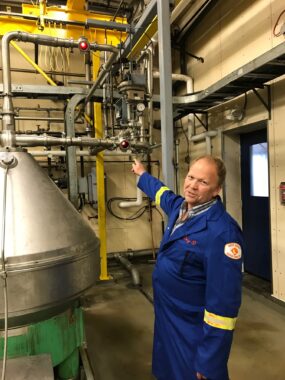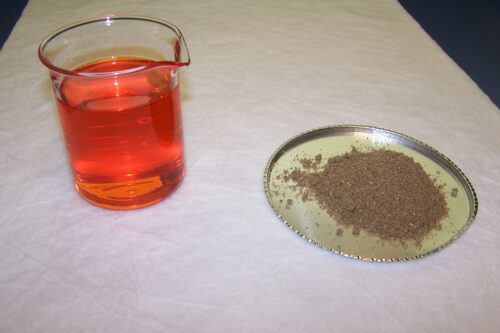A Vancouver-based business that helps salmon farms and processors deal with waste byproducts from their operations is concerned the volume of business it generates from the industry could be wiped out in two years if the 79 salmon licenses expiring on June 30 are not renewed.
West Coast Reduction Ltd (WCR), Western Canada’s largest independent rendering facility, says the aquaculture “waste” it collects from the industry – salmon heads, fins, tails, and guts – amounts to roughly 7,000 to 10,000 tonnes a year. The company provides collection services to about 75 percent of salmon farms and processing businesses in British Columbia. However, the question about the fate of the 79 salmon farm licenses expiring this month leaves this part of WCR’s business in doubt.
“Farm site production is very steady. Harvest rates are strong this year. But although the harvest rates are strong this year, we know from the Discovery Island decision that current volumes will not be maintained next year, and without the 79 renewals, the system will crash within two years,” Doug Davidson, WCR’s operations manager, tells SalmonBusiness.
Collateral damage
He says the permanent closure of Mowi’s fish processing plant in Surrey, British Columbia, last March had a big impact on its business.

Mowi closed the 23,000-sq-ft processing plant with 80 employees because it was “no longer viable” due to the impending closure of its sites (which are among the 79 licences) in the Discovery Islands.
“Mowi’s value-added plant now closed in Surrey had grown quickly to give us a good volume… and it’s gone,” says Davidson.
Circularity
WCR pays salmon farms and aquaculture processors in BC for their fish waste. WCR renders it into other products, such as fishmeal and oils.

“All sources of fish parts that make up our fish rendering operations are very important to its success. Aquaculture is a strong year-round operation that keeps people employed and ‘trucks rolling’ throughout the year.
“The many sources of wild fish parts that make up the rest of the fish volume contribute greatly to supporting our fish rendering business, while they in turn are supported. Further losses to any of our fish volume could put the fish rendering services offered to all in jeopardy,” says Davidson.
He says that rendering depends on significant volumes to make it economically viable. Thus, so far, he’s not aware of any salmon producers in BC that are doing their own rendering.
The company has rendering facilities – certified by the Canadian Food Inspection Agency – in downtown Vancouver and Nanaimo, BC.
Over the past five years, it has improved services to key hatcheries on Vancouver Island, as well as improved services for farm sites in order to get their waste products quickly enough, thus fresh enough, for rendering. Earlier, some of those businesses located far away or with small volumes of fish waste had to just rely on composting in their own backyards.
Davidson says, “Small quantities at great distance are very tough to justify the equipment required for the service, but we have made gains through improved logistics and stabilization of fish volumes for transport.”

Big question mark
The federal government, through Fisheries and Oceans Canada, will announce any moment now its decision about the 79 licenses expiring at the end of this month.
“There is a great deal of uncertainty in all of BC’s fisheries and aquaculture today. Our federal and provincial governments will be setting the table this summer to establish whether BC will become an importer of seafood for our meals,” concludes Davidson.

